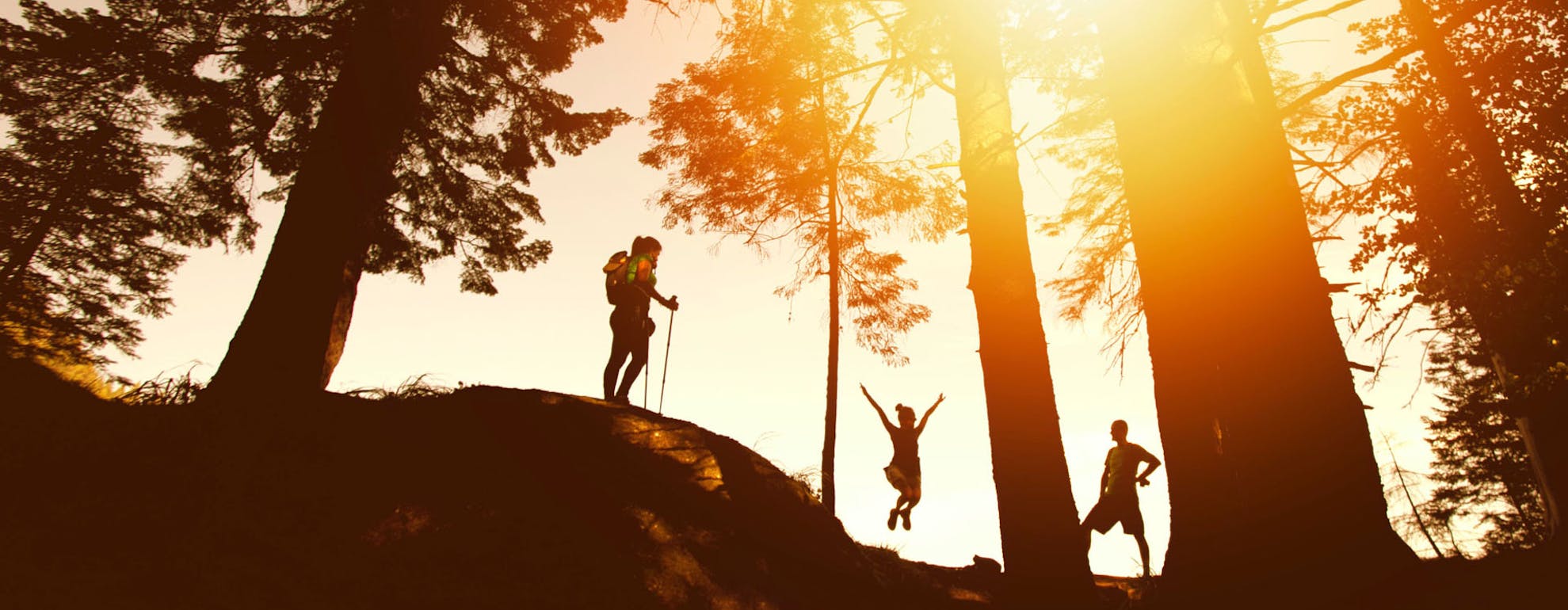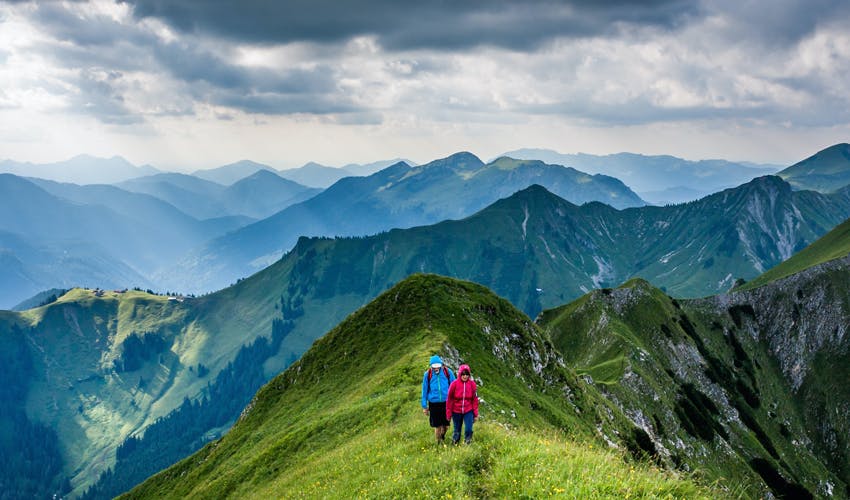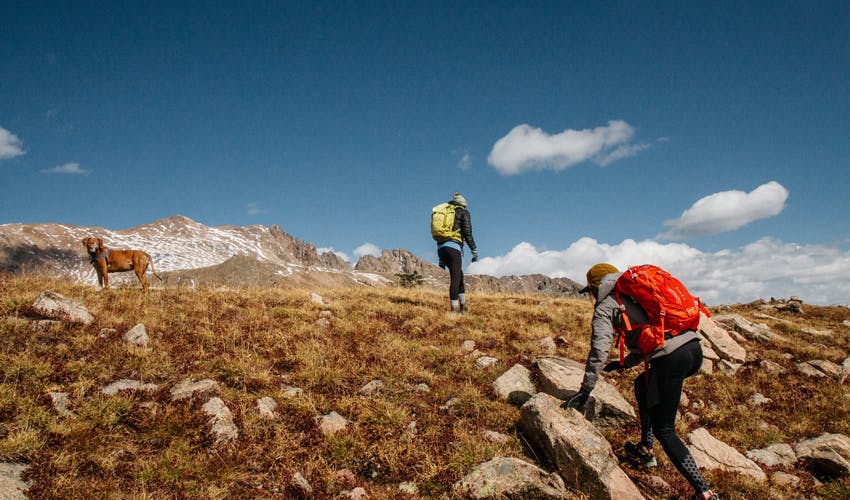
Health & Wellbeing
What is the Countryside Code and Why is it Important for Trail Runners and Hikers?
As lockdown restrictions lift and people begin to travel back to our rural spaces and National Parks, it is more important than ever to respect our natural environment and look after it for us all to enjoy.
Based in his beloved Wensleydale, in the Yorkshire Dales, fell runner Josh Westwood is extremely passionate about the outdoors. Here, in this definitive guide, he helps us to understand why it’s so important for us all to follow and respect the Countryside Code.
ㅤ
WHAT IS THE COUNTRYSIDE CODE?
The Countryside Code is a set of rules for visitors to rural regions of the United Kingdom - especially agricultural areas. It can be thought of as a standard set of guidelines for members of the public to ensure respect and enjoyment in the countryside. The Countryside Code can be summarised using these three main points:
ㅤ
1. RESPECT OTHER PEOPLE
Consider the local community and other people enjoying the outdoors.
Leave gates and property as you find them and follow paths unless wider access is available.
ㅤ
2. PROTECT THE NATURAL ENVIRONMENT
Leave no trace of your visit and take your litter home.
Keep dogs under your control and on a lead in.
ㅤ
3. ENJOY THE OUTDOORS
Plan ahead and be prepared.
Follow advice and local signs.
Full details of The Countryside Code can be found here:
ㅤ
WHY IS IT IMPORTANT THAT I RESPECT THE COUNTRYSIDE CODE?
As well as being an outdoor playground, the countryside is also a place in which people live and work. We must ensure that our leisure activities do not have a negative impact on people’s homes and businesses. This is especially true of agricultural areas, where things such as litter and out-of-control dogs can cause a real problem.
It is also important to be aware of how our actions may impact the natural environment. The flora and fauna of the countryside is part of the attraction for so many of us, and we must enjoy ourselves responsibly in order to protect rural habitats and ecosystems.
ㅤ

ㅤ
IMPORTANT RULES OF THE COUNTRYSIDE CODE:
ㅤ
SAFETY
When heading off into the countryside, it is your own responsibility to make sure that you are well prepared- both in terms of your equipment and your ability to navigate. Pack not just for the activity itself, but for any potential setbacks too. For example, as a runner, you may suffer a muscle strain, broken ankle or serious stomach issue whilst on the trail. If you have taken the time to pack a fully charged mobile phone, some lightweight waterproofs, a spare warm layer and hat & gloves then you will be able to call for help and will be at a much lesser risk of hypothermia whilst waiting for assistance to arrive. Hypothermia can set in even on warmer days if you are static, injured and potentially in damp clothes- don’t put yourself in unnecessary danger. The above items pack into a bum bag or compact rucksack, are lightweight and extremely easy to carry.
Regarding navigation, basic map reading skills are essential. GPS devices, mobile phones and watches (as brilliant as they are) can all experience faults and run out of battery, but a map, compass and a sound knowledge of how to use them will never let you down. Learn how to use them effectively and it will not only make you safer but will also boost your confidence to explore the great outdoors.
ㅤ
LITTERING
Unfortunately, litter is an ever-present problem in the countryside. It can be hazardous to both wild and domestic animals and is unsightly to humans. The problem is not limited to plastic either: even a banana skin can take up to two years to biodegrade and is not the favourite snack of any animal. Remove all your litter (including food waste) and dispose of it properly.
ㅤ
BE CONSIDERATE
The countryside is there for us all to enjoy, and we must make sure that our actions do not spoil the enjoyment of others. Whilst on the trail, allow space for other walkers/runners etc, and avoid cycling on footpaths. Ordnance Survey maps are a great way to find out whether a right of way is a footpath, bridleway or byway, and they also show areas of open access land. Sticking to permissive trails for your chosen activity avoids the risk of confrontation with landowners and other trail users.
ㅤ
RESPECT THE LOCALS
Rural areas welcome tourists as they contribute a considerable amount to the local economy each year. However, some tourists forget that the countryside is both home and work to many people. Try to keep noise to a minimum (especially in villages) and avoid causing a nuisance to those who work the land. If you are from an urban area, remember that country folk often have different practices and traditions to city dwellers. Respect them and you’ll find that you receive respect in return. Most farmers and gamekeepers will be only too happy to help you out, especially if they see you have respect for the land they care for.
ㅤ
GOING TO THE TOILET
Out on the trail with no public toilet or portaloo in sight- sometimes there is just no alternative! If you really must go, try to find an area well away from where people may walk. Avoid leaving behind any toilet roll or wipes (as these create litter - use a doggy bag!) and, if possible, bury your “doings” using a small portable trowel. These are lightweight, easily packable and a handy addition to your rucksack in case of emergency! A small bottle of hand sanitiser is also useful to keep things hygienic.
ㅤ

ㅤ
LEAVE OUTDOOR SPACES AS YOU FIND THEM
TAKE ONLY PHOTOGRAPHS, LEAVE ONLY FOOTPRINTS
Keep this in mind whilst enjoying the countryside and you won’t go far wrong! Leaving the landscape as you found it (or better) will contribute to the continued enjoyment of all visitors and locals. If you have space in your bag, you might even be tempted to take someone else’s litter with you if they have not been quite as careful!
ㅤ
KEEP DOGS UNDER CONTROL
An out-of-control dog can be intimidating for other people and present a very real danger to wildlife and livestock. Remember that not everyone finds your hound as lovable as you do, and many people are quite scared of dogs. Brands such as Ruffwear make brilliant leads, collars and harnesses for all types of dog and activity, so it is easy to keep them under close control whilst you enjoy the outdoors. Don’t forget to pack some ‘doggy bags’ to clean up after your four-legged friend and be sure to dispose of the bag in the appropriate manner.
ㅤ
PARKING
Just because a road doesn’t have double-yellow lines, or because someone else has parked there, it does not mean it’s a sensible place to park! Avoid parking in areas that may cause an obstruction, on village greens and directly outside houses (unless permitted) or on roadsides where your vehicle may cause an obstruction to other road users. Much damage has been done to grass verges where large farm vehicles have had to squeeze past cars that have been parked irresponsibly. Don’t allow your leisure activity to disrupt the daily lives of others.
ㅤ
USE RECOGNISED FOOTPATHS AND TRAILS (NO TRESPASSING)
Rules on rural access apply for a variety of reasons: to protect livestock and wildlife; to prevent erosion and to protect fragile habitats and ecosystems. Many rights of way also cross private land, where not sticking to them could be classed as trespassing. On higher ground, Open Access rights often exist allowing freedom to roam without being restricted to a path. However, these rights usually only apply to those on foot, and certain access rights may be temporarily removed at certain times of the year. For example, it is common for areas of Open Access moorland and coastal land to have restrictions in the Spring and early Summer in order to protect ground nesting birds. Usually, the local authority or landowner will install signs in the area showing a map of the restrictions.
ㅤ
NO WILD CAMPING OR OPEN FIRES
Wild camping is generally illegal in England but is often tolerated if you ask permission from the landowner beforehand. Other areas of the UK have different laws on camping, but it is always best to check first and seek permission. Demonstrating that you can camp responsibly and quietly, leaving no trace and taking litter away with you is the best thing you can do if you want to be allowed back! Most landowners are happy once they know that you are treating the land with respect.
BBQs and open fires must always be avoided without expressed permission from the landowner. Not only can they leave unsightly marks on the ground, but in dryer times of year they present an extreme risk of wildfire. Something that can cause huge amounts of damage to local flora and fauna if allowed to burn out of control.
ㅤ
HANDY TIPS FOR TRAIL RUNNERS AND HIKERS
Take an OS map and escape from the ‘honeypot’ areas. Some of the most amazing days out can be had by venturing off along rights of way that aren’t in the guidebook.
If you do decide to go exploring, software and apps such as OS Maps, Strava, Komoot etc are ideal for planning manageable and sensible routes. Always take a map and compass though just in case!
The outdoor shoe market has never offered such a diverse choice for all activities. Make sure that you invest in some suitable outdoor footwear for your chosen activity. It will make your day much more comfortable.
Check the weather forecast before you head out. That way you can make sure you have the right kit for the weather you may face. Apps such as WeatherPro and Met Check are very accurate, and the Mountain Weather Information Service (MWIS) have a fantastic website. Their daily forecasts cover all of the UK’s mountainous areas and can be viewed in an easy-to-read PDF format. MWIS forecasts have much more specific details for those looking to head for the hills.
Carry safety equipment and clothing appropriate to the weather and terrain you will encounter. Always make sure you have a little bit extra in case of emergencies.
Know what to do in an emergency. Making sure you know how to call for help, what escape routes to take and how to perform some basic first aid could save lives.
Want to learn more? Visit our Health and Wellbeing category to help look after your body, mind and personal safety with our expert advice and guidance.
Welcome
Welcome to our SportsShoes Health & Wellbeing Hub! Look after your body, mind and personal safety with our expert advice and guidance.